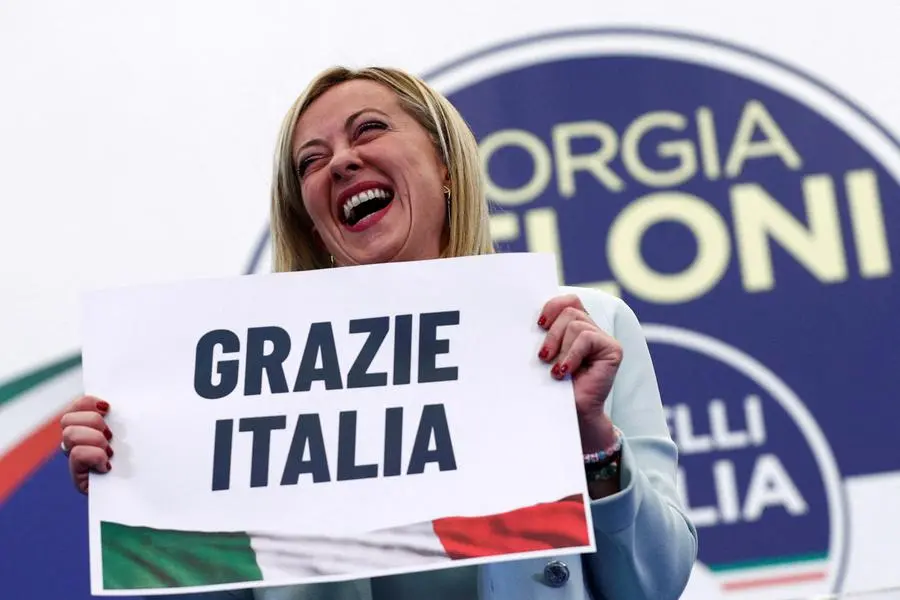PHOTO
ROME - Giorgia Meloni, widely expected to be named Italy's first woman prime minister after Sunday's elections, will have to tackle a raft of pressing economic problems as soon as her government takes office.
The country's laborious institutional proceedings mean that will not happen for at least a month, during which outgoing Prime Minister Mario Draghi remains in charge. This week he will issue new economic forecasts expected to show a darkening outlook, sources said.
The first task for Meloni, leader of the far-right Brothers of Italy, will be finding billions of euros to keep her election pledges to soften energy costs, cut taxes and block a hike in the retirement age due to kick in from January.
The energy crisis "will be the first test for the new government", League leader Matteo Salvini, her main coalition ally, told reporters.
Draghi has already set aside 66 billion euros ($63.63 billion) this year for tax breaks and subsidies to help energy-intensive firms and poor households.
Those are due to expire in November, and extending them for another month would cost 4.7 billion euros, Treasury officials said.
Meloni is helped by the fact that higher energy prices increase government revenues from excise duties and value added tax, meaning she can probably find the money without raising state borrowing, the officials said.
However, with business activity across the euro zone rapidly deteriorating, it is likely she will have to approve similar measures in 2023.
At an additional cost of 3.5 billion euros, the new government also plans to extend to 2023 existing tax breaks for workers due to expire this year, a senior Meloni aide in the running for a prominent cabinet post told Reuters.
Pensions are another problem Meloni has to tackle fast.
A temporary regime allowing people to take a state pension when they are 64 expires in December, after which the age will rise to 67 under an unpopular 2011 reform which Salvini wants scrapped.
Blocking the rise in retirement age will add to a state pension bill which is the second highest in the euro zone as a proportion of national output, after Greece.
Because pensions are index-linked, Italy's almost double-digit inflation rate is compounding the problem. In June, the Treasury said the pension bill would rise next year to 16.2% of gross domestic product from 15.7% expected in 2022.
(Editing by Nick Macfie)





















